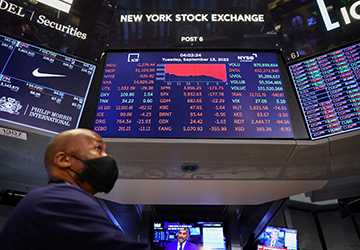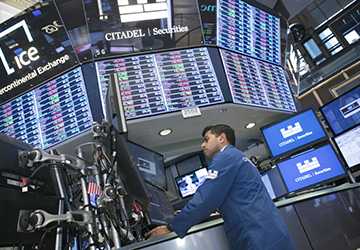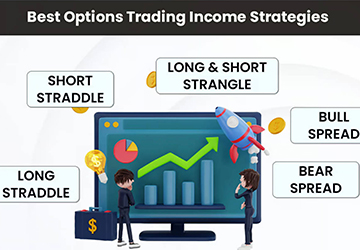In the intricate web of financial trading, a diverse array of participants works diligently to maintain the flow and efficiency of transactions. Market makers emerge as central figures within this ecosystem, ensuring the seamless operation of financial exchanges. This exploration aims to shed light on what market makers are, delineate their role in stock trading, and underscore how they contribute to the market's operational fluidity.

Decoding Market Makers
So, what are market makers? Essentially, they are entities—firms or individuals—dedicated to continuously purchasing and selling securities at publicly listed prices. By holding a diverse portfolio of securities, they inject liquidity into the marketplace, facilitating prompt and efficient trade executions.
The Essential Function of Market Makers in Stock Trading
The cornerstone role of market makers in stock trading revolves around liquidity provision. This pivotal function enables investors and traders to execute buy and sell orders seamlessly without causing drastic price fluctuations. Market makers achieve this by offering buying and selling quotes for securities, thus ensuring they're always on hand to complete transactions; this minimizes price volatility and streamlines the trading process.
The difference in the buy compensates market makers and sell prices of securities. This margin serves as a reward for their risk in holding securities and a critical role in sustaining market liquidity.
The Crucial Impact of Market Makers
Market makers serve as the market's backbone, especially when specific securities lack immediate buyers or sellers. Without their presence, selling security could become a prolonged or less profitable endeavour for an investor. Market makers guarantee the availability of buy and sell orders, playing a vital role in price stabilization and facilitating smooth transactions.
Market Makers' Influence on Security Prices
Although market makers are instrumental in maintaining liquidity, their trading activities can also sway security prices. However, it's essential to recognize that these price adjustments are not arbitrary but influenced by prevailing market conditions, including supply and demand dynamics.
The Hurdles Market Makers Face
Despite their indispensable role, market makers navigate through several challenges, such as market risk associated with holding a diverse array of securities and potentially significant losses if the market trends unfavourably. The rise of high-frequency and algorithmic trading has necessitated that market makers evolve to stay competitive and efficient in their liquidity provision.
Types of Market Makers in Stock Trading
Institutional Market Makers
Banks and Financial Institutions
● Role: These market makers are typically large banks or financial firms that buy and sell securities in significant volumes.
● Function: They provide liquidity to the market by maintaining a ready-to-execute inventory of securities, thereby facilitating large transactions with minimal impact on market prices.
Broker-Dealers
● Role: Firms that act as brokers (executing trades for clients) and dealers (trading for their accounts).
● Function: They quote both buy and sell prices for securities, ensuring that transactions can occur seamlessly for various financial instruments.
Retail Market Makers
Brokerage Firms
● Role: These entities cater to the retail segment of the market, helping individual investors execute their trades.
● Function: By providing liquidity for a broad range of securities, they ensure that even less commonly traded stocks are accessible to individual traders.
Electronic Market Makers
High-Frequency Trading (HFT) Firms
● Role: Utilize advanced algorithms and ultra-fast execution speeds to trade securities, often acting as market makers.
● Function: These firms contribute to liquidity by engaging in a high volume of trades over very short time frames, often profiting from minor price differences.

Specialty Market Makers
Exchange Specialists
● Role: They operate on certain stock exchanges and ensure specific stocks' fair and orderly trading.
● Function: They manage the book for a stock, matching buy and sell orders and stepping in to purchase or sell as necessary to maintain market liquidity.
Options Market Makers
● Role: Specialize in trading options contracts, providing liquidity to the options market by being ready to buy or sell options at publicly quoted prices.
● Function: They help reduce the bid-ask spread for options, making it easier for investors to execute options strategies.
Navigating the New Age: Market Makers at the Forefront
As financial markets undergo a digital metamorphosis, market makers have harnessed cutting-edge technologies to refine their operations. Adopting advanced algorithms and artificial intelligence tools has revolutionized their capacity to sift through extensive datasets, expedite decision-making processes, and bolster risk management. This transformation not only elevates the efficiency of market makers but also enhances the robustness and agility of the broader financial ecosystem.
Enlightening the Financial Community: A Hidden Role
The educational contribution of market makers within the sphere of stock trading is a facet that often goes unnoticed. By fostering transparent and streamlined markets, they set the stage for a hands-on educational experience for participants ranging from beginners to seasoned professionals. The strategic manoeuvres of market makers serve as a live classroom, offering deep dives into the nuances of market trends, trading behaviours, and strategic formulation.
Visioning the Future: Market Makers' Expanding Influence
As we peer into the horizon, the narrative surrounding market makers is poised for further evolution amid an increasingly interconnected and sophisticated market structure. Anticipated to play even more pivotal roles, they will be instrumental in upholding market integrity, deterring manipulative practices, and enhancing access to global markets. The agility of market makers to incorporate emerging financial instruments and leverage new technologies will be paramount in sculpting the future contours of stock trading.
Conclusion
Understanding market makers is vital for stock trading participants. By ensuring liquidity and the prompt execution of orders, market makers underpin more streamlined and efficient market operations. Their indispensable role is a cornerstone in safeguarding the financial market's health and stability.
To sum up, market makers are the unsung heroes of the stock trading world. They maintain liquidity and operational functionality. Their expertise in risk management and adaptability to market changes remain critical to the trading ecosystem's vitality.



